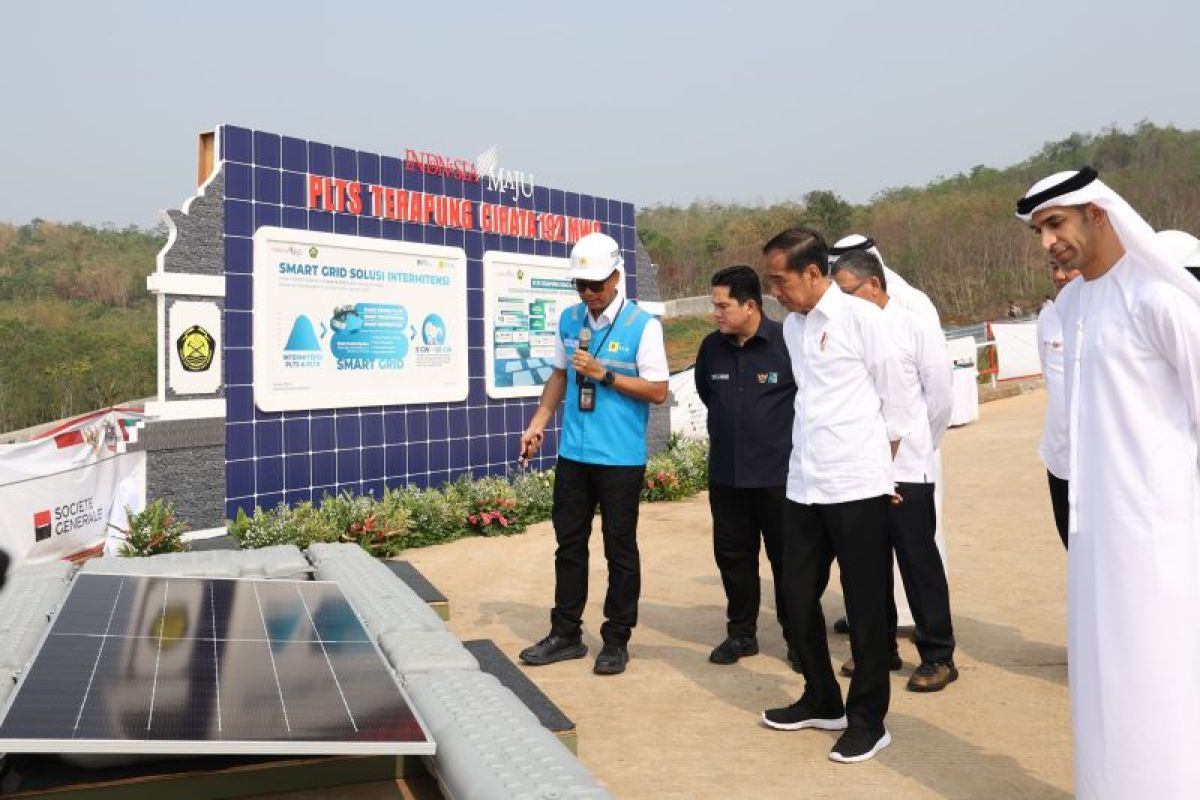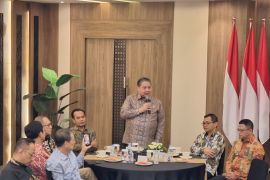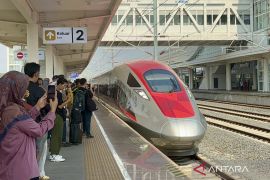The fact that Jakarta has been standing among cities with the worst air quality in the world should have driven relevant stakeholders to exert even greater efforts to lower the amount of carbon emissions generated.
Moreover, Indonesia has ratified the Sustainable Development Goals (SDGs) that push countries around the globe to achieve various goals, including the Global Goal 13: Climate Action.
To provide the residents of Jakarta with cleaner air and a better living environment, the provincial government has continued to devise and implement policies that encourage carbon reduction in all sectors.
For instance, the provincial government has formulated a guideline that aims to drive all means of public transportation in the city to switch to using new and renewable energy and replace fossil-based fuel. The government has also conducted inspections on private vehicles that generate excessive carbon emissions, surpassing the determined threshold.
Through a regulation, the government stipulates that all pre-2007 vehicles using fossil-based fuel should maintain their carbon monoxide (CO) levels below 3.0 percent, with hydrocarbon emissions generated below 700 ppm. Meanwhile, the CO levels of vehicles produced after 2007 must not exceed 1.5 percent, with hydrocarbon emissions generated below 200 ppm.
The endorsement of the use of eco-friendly energy goes beyond public transportation, as the provincial government has been pushing for the utilization of battery-powered vehicles among its officials. In that regard, the government has begun to gradually replace or convert all conventional operational vehicles into eco-friendly ones, starting from those used by the Transportation Office.
Furthermore, Jakarta has continued to increase the number of public electric vehicle charging stations at every corner of the city in a bid to attract a broader population to opt for using electric vehicles as their main means of transportation.
In order to echo the importance of lowering carbon emissions, the government has also been intensifying dissemination activities by targeting industrial zones located in Marunda, Pluit, Cengkareng, and others. Moreover, cross-sector stakeholders in Jakarta have been involved in programs that seek to expand green spaces in the city.
Related news: Indonesia can build green economy through decarbonization: KSP Chief
Technology
To complement its carbon reduction efforts, the Jakarta Provincial Government has also been working along with producers of fossil-based fuels to create breakthroughs and innovations that can help the city deal with its air pollution problems.
Almost every stakeholder in the oil and gas sector works hand in hand to develop and make the most of a mechanism known as carbon capture and storage (CCS) that provides a way to capture, store, and recycle carbon emissions into fuel while lowering greenhouse gas emissions in the process.
The implementation of the mechanism, however, is not as easy as turning the palm of the hand. In fact, long and complex processes are inevitable to manage carbon emissions with CCS.
Founder and CEO of Energy Academy Indonesia (Ecadin) Desti Alkano stated that the Indonesian Government needs to develop accurate policies and stay true to its commitment to emission reduction in order to enable the CCS mechanism to develop sustainably in the country.
Various regional and global meetings and forums have been held to discuss CCS, proving that the mechanism offers solutions to the world's carbon emission issues.
With that in mind, the Indonesian Government has committed to supporting the development of CCS and any other viable means to reduce carbon emissions, including by providing convenience to parties willing to invest in eco-friendly programs and activities.
It is worth noting that Indonesia wields huge potential to become a prominent player in the global CCS ecosystem, no wonder that the country is determined to emerge as a regional center for CCS. To that end, the government must be able to support technological developments and create a suitable ecosystem for CCS, so that the mechanism will become more appealing for parties in economic terms.
The Indonesian Government believes that the development of CCS is instrumental in driving the country to achieve the net-zero emissions target. Hence, the government has continued to provide support by encouraging research, developing technology, and producing talents capable of accelerating the implementation of CCS in the country.
Related news: Carbon tax to give businesses alternative to reduce emissions: MoF
A long journey
The implementation of the CCS mechanism might emerge as a breeze of fresh air for Jakarta, as the city has long been striving to identify ways to deal with its greenhouse gas emission issues.
According to a study conducted from 2010 to 2018, the transportation sector was identified as the main contributor to carbon emissions in Jakarta. As a densely-populated city that relies heavily on the use of private vehicles for economic activities, Jakarta is indeed facing tough challenges in handling air pollution.
One of the most vital aspects that need to be addressed by Jakarta in its journey toward becoming a pollution-free city is its discrepancy between the utilization of private vehicles and means of mass transportation. In this context, on-point policies are required to suppress carbon emissions.
To bolster the appeal of public transport, the provincial government can provide feeder buses that are accessible to all Jakartans while improving the quality of all infrastructure and facilities related to mass transport.
That way, Jakarta might be able to gradually reduce greenhouse gas effects while waiting for the development and implementation of the CCS mechanism that is expected to help recycle carbon emissions.
Furthermore, the government needs to pay attention to properly design and manage road networks for the sake of freeing Jakarta from traffic congestion, its archenemy, which can exacerbate the amount of emissions generated by vehicles.
All the efforts must be carried out in tandem with opening more parks and other types of green spaces that can help Jakarta clean its air from pollution stemming from soot emitted by motorized vehicles and industrial activities.
The urgency to immediately take actions to reduce carbon emissions becomes even more critical, considering that around 100 thousand people in Jakarta suffer from acute respiratory infection every month.
Another question arises: Will Jakarta be free from the strangle of air pollution once its status as the capital city is transferred to Nusantara? No one can provide a certain answer to that question.
On that note, there are no other options available for the Jakarta Provincial Government besides devising and implementing sustainable policies, strategies, and programs that lead to one goal: cleaner air for Jakartans.
Related news: Jakarta to add air quality monitoring stations to handle pollution
Related news: Jakarta to add 9 air quality monitoring stations
Editor: Yuni Arisandy Sinaga
Copyright © ANTARA 2024












